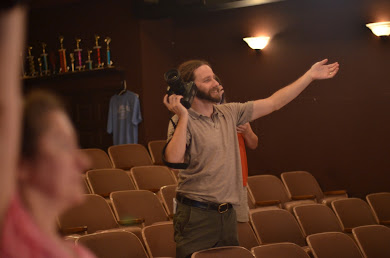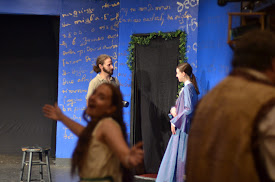This post gives a summary of the stories, novellas (if any) and plays of Anton Chekhov from 1887. If you know of things which should be added, please let me know.
Stories
- "Aborigines"
Text:
http://www.gutenberg.org/ebooks/13414
- "An Adventure"
Text:
http://www.gutenberg.org/ebooks/13417
- "An Avenger"
Summary:
Humorous story of a man who finds his wife with another man and goes to buy a gun. He buys a fishing net instead.
Text:
http://www.gutenberg.org/ebooks/13409
- "Bad Business"
Text:
http://www.gutenberg.org/ebooks/13412
- "Bad Weather"
Text:
http://www.gutenberg.org/ebooks/13418
- "Beggar"
Text:
http://www.gutenberg.org/ebooks/13409
- "Boa Constrictor and the Rabbit"
Note:
Missing from Wikipedia. Appeared in [Y].
Summary:
Unlikely tale of a man describing how he would seduce a happily married woman.
- "Boys"
Text:
http://www.gutenberg.org/ebooks/13417
- "The Cattle-Dealers"
Text:
http://www.gutenberg.org/ebooks/1732
- "Champagne"
Text:
http://www.gutenberg.org/ebooks/1732
- "The Cossack"
Text:
http://www.gutenberg.org/ebooks/13414
- "The Coach-House"
Text:
http://www.gutenberg.org/ebooks/1732
- "Darkness"
Text:
http://www.gutenberg.org/ebooks/13409
- "A Defenseless Creature"
Also "A Defenceless Creature"
Text:
http://www.gutenberg.org/ebooks/13409
- "The Doctor"
Summary:
http://litmed.med.nyu.edu/Annotation?action=view&annid=962
Text:
http://www.gutenberg.org/ebooks/13414
- "A Drama"
In "Early Stories".
- "Drunk"
Text:
http://www.gutenberg.org/ebooks/13412
- "On Easter Eve"
Note:
Some date this story as 1886.
Also "Easter Eve", "The Night Before Easter", "Easter Night"
Summary:
http://litmed.med.nyu.edu/Annotation?action=view&annid=1504
http://www.sparknotes.com/lit/chekhov/section5.rhtml
Text:
http://classiclit.about.com/library/bl-etexts/achekhov/bl-achek-easteve.htm
- "The Encounter"
Note:
Also "An Encounter"
Missing from Wikipedia (but in "The Portable Chekhov" [Y'])
See also http://people.brandeis.edu/~teuber/chekhovbio.html
Summary:
This is a story about a devoted Denisov who roams the country begging for funds to rebuild his church. He runs across Kuzma, a thief and a liar who takes his money. Out of guilt, he tries to return what is left, but Denisov only repeats "It's God's money."
- "Enemies"
Summary:
http://litmed.med.nyu.edu/Annotation?action=view&annid=303
Text:
http://www.gutenberg.org/ebooks/13412
- "The Examining Magistrate"
Text:
http://www.gutenberg.org/ebooks/13412
- "Expensive Lessons"
Text:
http://www.gutenberg.org/ebooks/13505
- "A Father"
Text:
http://www.gutenberg.org/ebooks/13418
- "From the Diary of a Violent Tempered Man"
Text:
http://www.gutenberg.org/ebooks/13412
- "Frost"
Text:
http://www.gutenberg.org/ebooks/13409
- "Happiness"
Summary:
http://litmed.med.nyu.edu/Annotation?action=view&annid=1309
Text:
http://www.readbookonline.net/readOnLine/1031/-
- "A Happy Ending"
Note:
Not to be confused with "Happiness"
Text:
http://www.gutenberg.org/ebooks/13409
- "Home"
Summary:
This is a story of a father trying to teach a lesson to his son (to stop smoking). He eventually succeeds not though logic but through a story.
http://litmed.med.nyu.edu/Annotation?action=view&annid=1282
Text:
http://www.gutenberg.org/ebooks/13417
- "An Inadvertence"
Text:
http://www.gutenberg.org/ebooks/13412
- "In Passion Week"
Text:
http://www.gutenberg.org/ebooks/13417
- "In Trouble"
Text:
http://www.gutenberg.org/ebooks/13409
- "Kashtanka"
Summary:
The story about a dog is told by an omniscient narrator who follows the dog's subsequent adventures largely from her eyes.
http://litmed.med.nyu.edu/Annotation?action=view&annid=12106
Text:
http://www.gutenberg.org/ebooks/13417
- "The Kiss"
Summary:
In this story, Ryabovitch, a real loser of an ordinary man, undergoes two extraordinary experiences. In the first of these, he stumbles by chance into a passionate kiss, at a party in the dark. The second extraordinary experience takes place near the end of the tale, when Ryabovitch learns to expect nothing.
http://litmed.med.nyu.edu/Annotation?action=view&annid=11984
Text:
http://www.gutenberg.org/ebooks/13413
- "A Lady's Story"
Text:
http://www.gutenberg.org/ebooks/1732
- "The Letter"
Summary:
Story of an archdeacon who has two visitors late one night after a long day. One is a failed priest, who as "lost his way" by drinking too much and not following proper church protocols. The other has "lost his way" because he cannot love his brother for who he is. The letter is written by the archdeacon for the second priest. Despite his failings, the first priest shows more compassion.
Text:
http://en.wikisource.org/wiki/The_Letter_(Chekhov)
- "The Lion and the Sun"
Text:
http://www.gutenberg.org/ebooks/13414
Text:
http://www.ibiblio.org/eldritch/ac/jr/140.htm
- "The Lottery Ticket"
Text:
http://www.gutenberg.org/ebooks/1883
- "A Mystery"
Text:
http://www.gutenberg.org/ebooks/13412
- "Notes from the Journal of a Quick Tempered Man"
In "Early Stories"
- "The Old House"
Text:
http://www.gutenberg.org/ebooks/13417
- "A Play"
Text:
http://www.gutenberg.org/ebooks/13412
- "Polinka"
Text:
http://www.gutenberg.org/ebooks/13416
- "A Problem"
Text:
http://www.gutenberg.org/ebooks/13413
- "TheReed-Pipe"
In "Early Stories".
- "The Runaway"
Text:
http://www.gutenberg.org/ebooks/13417
- "Shrove Tuesday"
Text:
http://www.gutenberg.org/ebooks/13417
- "The Siren"
Summary:
An amusing story of a panel of judges who disagree on a case; the judge who opposes an opposite opinion must write an opinion; the others tak about the dishes serves at their regular restaurant outing, causing the opposing judge to be distracted and drop his opposition and join them for dinner.
- "Too Early!"
Text:
http://www.gutenberg.org/ebooks/13414
- "A Transgression"
Text:
http://www.gutenberg.org/ebooks/1732
- "Typhus"
Summary:
http://litmed.med.nyu.edu/Annotation?action=view&annid=1733
Text:
http://www.gutenberg.org/ebooks/27411
Text:
http://www.gutenberg.org/ebooks/13413
- "Verotchka"
Also "Verochka"
Text:
http://www.gutenberg.org/ebooks/13418
- "Volodya"
Summary:
http://litmed.med.nyu.edu/Annotation?action=view&annid=1111
Text:
http://www.gutenberg.org/ebooks/13415
- "Zinotchka"
Text:
http://www.gutenberg.org/ebooks/13418
Plays
- Swansong - a one-act play
Text:
http://www.gutenberg.org/ebooks/1753
- Ivanov
Note:
A drama in four acts
Also "Ivanoff"
Summary:
http://litmed.med.nyu.edu/Annotation?action=view&annid=1139
Text:
http://www.gutenberg.org/ebooks/1755
No novellas were written by Chekhov in 1887, to my knowledge.
References
[C] A. Chekhov
http://en.wikipedia.org/wiki/Anton_Chekhov
http://en.wikipedia.org/wiki/Anton_Chekhov_bibliography
http://en.wikipedia.org/wiki/List_of_short_stories_by_Anton_Chekhov
Stories of Anton Chekhov:
http://www.gutenberg.org/browse/authors/c#a708
[Y] Avrahm Yarmolinsky (translator and editor), The Unknown Chekhov, Farrar, Straus and Giroux, 1999.
[Y'] Avrahm Yarmolinsky (Introduction), The Portable Chekhov, Penguin, 1977.



















